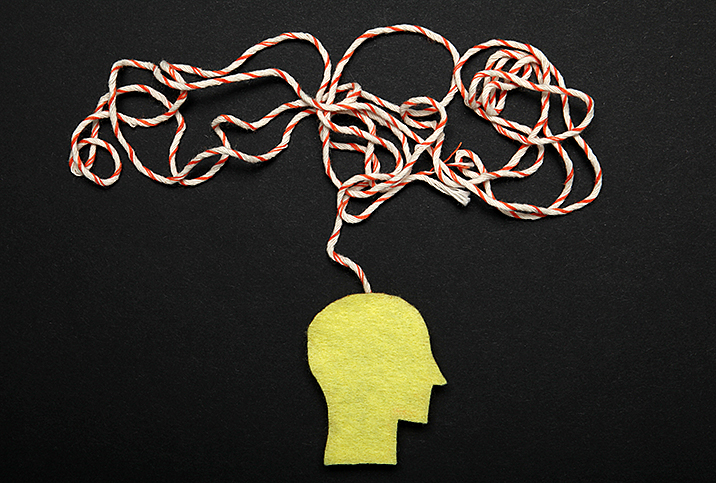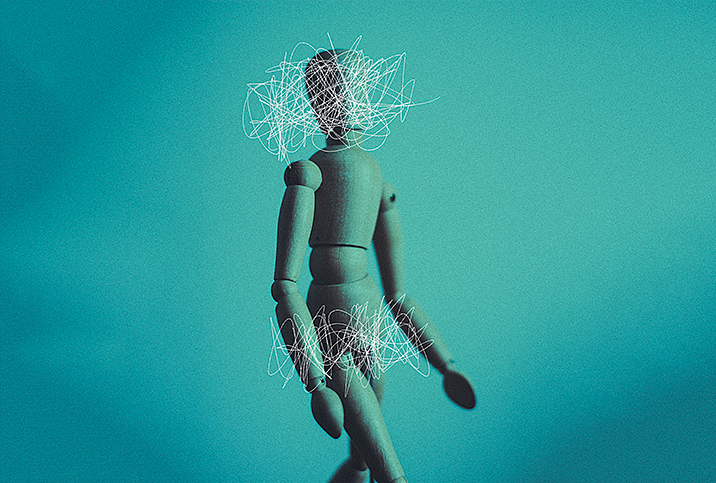What Time-Blindness Means for People With ADHD

Attention deficit hyperactivity disorder (ADHD) is far more than just hyperactivity. The Diagnostic and Statistical Manual of Mental Disorders, Fifth Edition (DSM-5)—the standard guideline of psychiatric disorders used by mental health professionals in the U.S.—identifies three types of ADHD: hyperactive, inattentive and combined type.
"Inattentive symptoms can be less obvious, like losing focus, disorganization or going off-topic in conversations," psychologist Amy Marschall said. "Sometimes we label these symptoms as 'laziness' (I hate that word) or 'ignoring.' Other signs we don't always think of are things falling under executive dysfunction, like having trouble starting a task, not knowing how to break something down or holding information in our working memory."
Wait, that sounds like me
Reddit user LunaStardust took her children to a psychiatrist at the suggestion of their teachers, who were frustrated with their behavior in class. It was in that visit that she discovered her children had ADHD and, to her great surprise, so did she.
"When the psychiatrist was talking to me about the behaviors that one would expect from someone who has ADHD, I was like, 'Wait a minute, doesn't everyone do that?' That was how we figured out I had ADHD, too."
She explained that, for most of her life, anxiety masked the symptoms of her ADHD. While her cousin was kicked out of school in the '80s due to issues with his own hyperactive impulses, hers were kept under wraps by anxious thoughts.
"My anxiety will not tolerate me being late to work or anything important like that," LunaStardust said. "So I always have to set an alarm on my phone to tell me when I need to get up and when I need to leave the house…. And then I find myself rushing and wondering, 'Why have I done this again?'"
Neurotypical individuals have an internal "clock," which offers a degree of understanding about how long a task will take or how much time has passed throughout the day. Neurodivergent people with ADHD don't. This symptom is known as "time blindness."
While LunaStardust's anxious mind helped her to develop time-tracking habits out of necessity, others, like myself, might have a different experience.
It's not that you're lazy
Because inattentive and combination-type ADHD are more difficult for outsiders to identify, they can also be difficult for individuals to recognize in themselves. Many people might think they're lazy or fail to realize they're experiencing life differently without a diagnosis.
"We tell people they aren't working hard enough or that they just need to try harder," Marschall said. "These comments can get in someone's head and make them believe they really are being lazy, and this goes double for someone who does not have a diagnosis or the education to understand why they act that way."
Time blindness, especially, is a major contributing factor to these guilty, negative feelings, working in conjunction with other aspects of ADHD—task-avoidance, hyperfocus, forgetfulness and disorganization, to name a few—to disorient individuals with ADHD and warp their understanding of the events in their lives. You might start something you enjoy—playing video games, for example—and become so engrossed in the task you fail to realize several hours have passed and you've yet to eat or do something important.
'Learn about how your brain works and what your strengths and needs are.'
The issue for many people is the tasks that allow us to enter hyperfocus are rarely tasks that contribute to career advancement and life progress. Therefore, we view ourselves as "lazy" because we've spent four hours bingeing "Ted Lasso" when we should have been revamping our résumé and drafting cover letters.
Marschall wants to make one thing abundantly clear: "You're not 'just being lazy!'"
She encourages her patients to "learn about how your brain works and what your strengths and needs are. It's also important to work on undoing that internalized, negative self-talk."
Understanding ADHD is massively important to combat it. Marschall also pointed out that many people with ADHD suffer from a secondary diagnosis—such as anxiety, depression, trauma, autism or any number of neurological conditions—so treatment options differ for each person.
Methods of management
Even as our understanding of mental health conditions improves, there is still a stigma against taking medication to manage it.
"I really, really did not want to take stimulant medication. I thought I would end up sitting in my living room, wearing overalls and rebuilding a carburetor," LunaStardust joked, referring to an experience she had as a kid when she witnessed a neighbor working on his motorcycle in the living room. Eventually, though, she had trouble managing her symptoms on her own. "I have been taking my medicine for two months now, and, thankfully, I haven't gotten high. It just got me back on track and controlled my ADHD."
"Each person gets to figure out with the support of their treatment team what options are right for them, and it breaks my heart when someone says they feel like they 'shouldn't need' medication," Marschall said. "Some people manage well without medication, absolutely, but if someone wants to pursue that as an option for their treatment, I'd like to see them make that decision based on what is best for them, rather than stigma."
The use of phone apps and other reminders or journals are a way of keeping track of tasks and remembering things.
Several strategies can help manage the effects of time blindness and hopefully any feelings of guilt or laziness. Setting alarms, as LunaStardust does, is an attention-grabbing method of saying to yourself, "It's time to go." Marschall seconds this, suggesting the use of phone apps and other reminders or journals as a way of keeping track of tasks and remembering things.
Marschall also encourages learning environments that, when possible, allow those with hyperactive-type ADHD to move around, as many find it difficult to sit still and pay attention. Generally, she recommends encouraging individuals to explore their environments to determine what will work best for them, whether it's at work or at school. A healthy sleep routine is also beneficial for those with ADHD.
There are also numerous online resources for those in need of support or those looking for like-minded individuals to engage with. I met LunaStardust, for example, on the ADHD subreddit, where users regularly post their experiences. It's where I first heard the term "time blindness," and where I find myself, daily, reading post titles that I nod my head to and say out loud, "That's it, exactly!"
Another avenue for education is ADHD Online, where Marschall and other qualified individuals host webinars dedicated to helping people understand living with ADHD.
"Social media is for [those with ADHD] to have a sense of community," LunaStardust said. "It's a place where we can reach out, find others like us and know that we're not alone. We need to use it to make friends who understand us, especially if we don't have anyone near us in the real world."




















